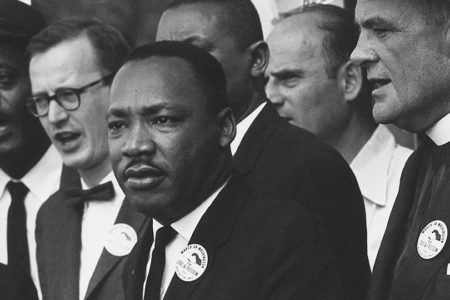Ministering with Integrity
1 Thessalonians 2:1–6
The apostle Paul’s abrupt departure from Thessalonica brought accusations that he was a religious charlatan preaching for financial gain and personal honor. If the accusations went unanswered, they could have destroyed the Thessalonian church or severely stunted its growth. Thus Paul wasted no time reminding the Thessalonians of his ministry to them and encouraging them as they faced severe persecution and privation for their commitment to Christ.
In this section of the epistle, Paul reviewed his motive, message, and ministry in Thessalonica. First, he presented the facts of what took place in his ministry in order to refute the false charges against him. Then he asked the Thessalonian believers to verify his report to silence, once and for all, the vicious charges against him.
Paul’s Preaching
Appealing to the Thessalonians’ personal knowledge, Paul reviewed the circumstances of his ministry among them: “For you yourselves know, brethren, that our coming to you was not in vain” (1 Th. 2:1).
The word for reaches back to 1:2–10 and connects it to what Paul was about to say. They “know” (with absolute certainty) Paul was speaking truth because they personally experienced his ministry from its inception. He addressed them as “brethren,” expressing his deep affection for them and emphasizing their relationship as fellow believers in Christ.
Paul reminded them that their team ministry in Thessalonica “was not in vain” (2:1). Their ministry was face-to-face. It was not concealed, clandestine, or conducted with crafty motive for personal gain. Second, it was not “vain.” That is, the character of their ministry was not empty, hollow, useless, ineffective, futile, or inconsequential. To the contrary, it was extremely fruitful, producing ongoing results, which the Thessalonians could verify.
Paul’s Plight
After denying any negative purpose for his visit, Paul provided an emphatically positive purpose concerning the character of his ministry among them: “But even after we had suffered before and were spitefully treated at Philippi, as you know, we were bold in our God to speak to you the gospel of God in much conflict” (v. 2). The word but indicates Paul was presenting a strong contrast to what he said in the preceding verse.
Paul and Silvanus had suffered severely while delivering the gospel on their second missionary journey. They were “spitefully [cruelly and shamefully] treated” (v. 2) at Philippi (cf. Acts 16:23–24) and had gross indignities heaped upon them. They were falsely arrested, charged, imprisoned, disrobed, put in stocks with the worst of criminals, beaten, and publicly humiliated. Throughout the epistle, Paul spoke of how he suffered while preaching the gospel. He was a Roman citizen who was treated unjustly, according to Roman law.
Hurting and weak from the horrific and cruel treatment they endured, he and Silvanus nevertheless made their painful way to Thessalonica to preach boldly in the synagogue there. In saying “as you know,” Paul again emphasized the Thessalonians knew of his condition (1 Th. 2:2). They were eyewitnesses to Paul’s physical condition and thus could vouch for his statements. Such firsthand knowledge should silence Paul’s accusers.
Again Paul emphasized the focus of his ministry at Thessalonica: “We were bold in our God to speak to you the gospel of God in much conflict” (v. 2). The word bold carries the idea of Paul’s increasing determination to speak with greater fearlessness. What he suffered for the gospel in Philippi did not make him shrink back in fear; it actually gave him more courage to herald the gospel.
Yet this courage was not produced by pure determination. Rather, it was “in our God.” Paul’s boldness was the supernatural gift of the Holy Spirit, motivating him to speak courageously. Only the Holy Spirit could have given Paul and Silvanus such strength, courage, and freedom of speech, especially after the opposition, persecution, and “much conflict” (v. 2) they experienced in Philippi. Paul and Silvanus understood they would always face suffering and the possibility of death in preaching the gospel for Jesus’ sake (2 Cor. 4:11).
If they had been preaching for personal fame or financial gain, they would not have gone so soon to Thessalonica to face the same harsh treatment they had received in Philippi.
It took extraordinary courage for Paul and Silvanus to keep going from city to city to proclaim the gospel. Lesser men would have turned back. Only someone committed to his divine calling and commission would press on to finish the task.
Paul’s Purity
Paul stated the motive behind their proclamation of God’s Word: “For our exhortation did not come from error or uncleanness, nor was it in deceit” (1 Th. 2: 3). They did not preach using flowery words, clever phrases of logic and wisdom, or human philosophy. Because their motives were pure, they received strength to speak boldly in the face of persecution. Paul gave three defenses to prove his motives were pure.
First, his “exhortation did not come from error” (v. 3). He did not go to them with trickery. The word error implies leading people astray by false teaching, as one uses bait to catch fish. Paul categorically denied that he used deception or manipulation to ensnare people to believe through his preaching.
Second, Paul did not use “uncleanness” (v. 3) to get a hearing. Some scholars teach that uncleanness refers to sexual impurity or immorality. It is absurd to think that a man of Paul’s character and integrity would ever use such means to promote his beliefs. Others hold that the word doesn’t refer to sexual depravity but, rather, to a lust to gain riches and fame from his preaching. Excellent Bible scholars hold various views, but the former view seems to be what the context teaches.
Third, Paul strongly denied using “deceit,” meaning schemes, craftiness, or tricks to persuade people.
Paul proved neither he nor his missionary team ever used dishonest, depraved, or deceptive means to persuade the Thessalonians: “But as we have been approved by God to be entrusted with the gospel, even so we speak, not as pleasing men, but God who tests our hearts” (v. 4).
Paul’s call and commission, as well as that of other team members, came directly from the Lord. These men were not novices but servants who were “approved by God” through trial and testing. They were worthy to be entrusted with the gospel. The phrase have been approved is in the Greek perfect tense, meaning having been once approved by God, their approval continued throughout their ministry. Therefore, Paul said, “we speak.” Obediently, they spread the gospel wherever they went.
The apostle added, “not as pleasing men, but God who tests our hearts” (v. 4). The word pleasing connotes the idea of tailoring one’s message to the opinions, desires, or interests of one’s audience to elicit a favorable response. Paul’s motive was only to please God and speak the gospel with boldness. These men realized God was judging the inner motives of their spiritual lives.
Paul reminded the Thessalonians of the character of his ministry before God and them. His words and works had come under close scrutiny: “For neither at any time did we use flattering words” (v. 5). Flattery means more than using praise to make the hearer feel good. It has the idea of gaining influence over the hearer for selfish ends.
Nor did Paul wear a “cloak of covetousness” (v. 5). The word cloak means “pretext” and has the idea of masking one’s true motive of greed. In other words, Paul was not using his apostleship as a selfish cover for enriching himself. “Covetousness” speaks of a greedy desire to acquire more at the expense of others. The apostle made it clear he never coveted anyone’s silver, gold, or apparel but worked with his own hands to provide for his needs (cf. Acts 20:33–34). False teachers, however, preached to enrich themselves. Paul fortified his statement by saying, “God is witness” (1 Th. 2:5), a phrase he used often (cf. Rom. 1:9; 2 Cor. 1:23; Gal. 1:20).
Only God knows the true motives of a person’s heart. People guilty of preaching the gospel for material gain or with wrong motives eventually will be unmasked, found guilty, and judged by Christ.
Paul added, “Nor did we seek glory from men, either from you or from others, when we might have made demands as apostles of Christ” (1 Th. 2:6). As servants of Christ, Paul and Silvanus were not seeking personal “glory,” praise, or applause from people. They sought God’s approval alone.
Paul said he and Silvanus “might have made demands as apostles of Christ” (v. 6). He had authority and power among the Thessalonians and could have demanded they give him and his team glory and praise, but he did not. The missionaries came as servants, without reservation or thought for their own needs. They desired only to minister to others. Their one passion was to please God. Is that your passion too?








